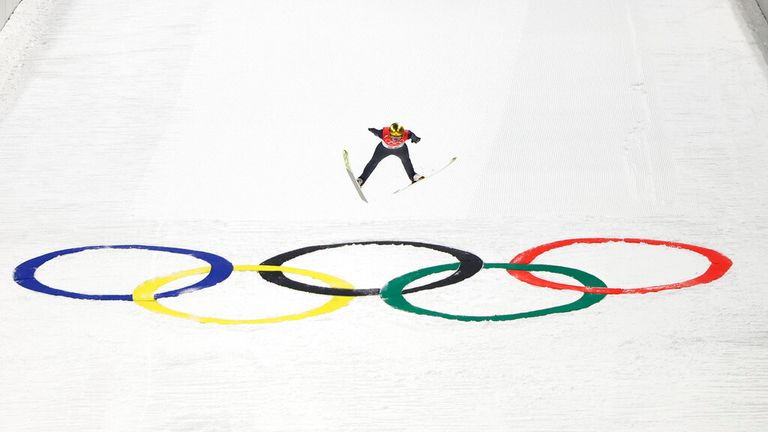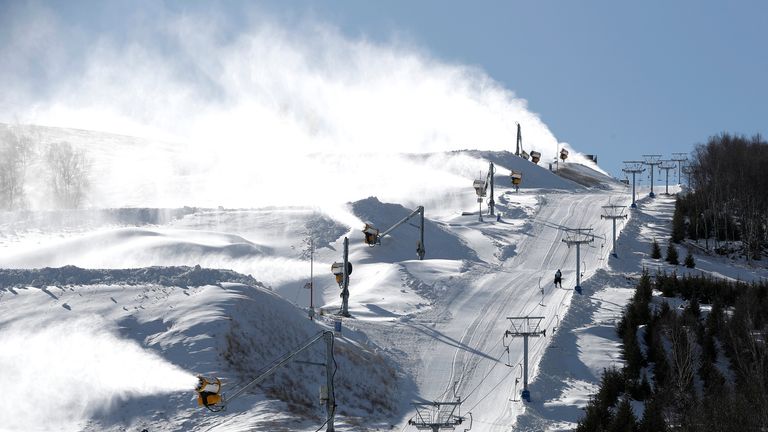The International Olympic Committee has told Sky News that the lack of natural snow at the Beijing Winter Olympics is “disturbing” – but has defended the sustainability of the Games.
“Obviously we are in winter sports and we have to acknowledge that what you see on the screen might be disturbing for some people,” Marie Sallois, the IOC director for sustainability, told Sky News.
“But the reality is that the Chinese are actually doing and delivering this winter sport with sustainability in mind in everything they have done.
“From building the venues, or even repurposing five venues from 2008, to using for the first time ever 100% renewable energy, to using low carbon mobility, and even featuring some very innovative solutions like CO2 refrigerant for ice making.”
Beijing is an arid region with less annual snowfall than London. All the snow used at the Games is entirely artificial, leading experts to question their green credentials.
Organisers used around 2.5 million cubic litres of water to create the snow.
Professor Carmen de Jong, a hydrologist at the University of Strasbourg, told Sky News: “These are the most unsustainable Games ever held because there’s so much at cost from the water issues to the water availability and even to the destruction of the local nature reserve.
“It’s not only the Winter Olympic venues, it’s a lot of new ski resorts that have developed around the Olympics, and all of them are running on 100% artificial snow, so all of them require very large amounts of water.
“The main problem with artificial snow is its impacts on the soil and the vegetation and the water quality.
“So locally, this will have effects such as soil erosion on the ski runs because when the artificial snow melts, it will release huge amounts of water that are not usually available in that region.”
Beijing is not the only Winter Olympics to have relied on artificial snow – it made up the majority of the snow at both the 2014 Sochi and 2018 Pyeongchang Games.
Subscribe to ClimateCast on Spotify, Apple Podcasts, or Spreaker.
“Unfortunately because of climate change we also know that winter sport more and more relies on artificial snow,” Mrs Sallois told Sky News.
“And it’s not an exception here. We know that all winter competitions have been relying on artificial snow. And we hope it’s not going to be the case everywhere in the future. And this is why we need to be extremely strong in terms of climate action.
“But in reality, everybody one way or the other will have to use artificial snow. So the fact that we try to make it as efficient as possible here is also something of interest beyond China.”


